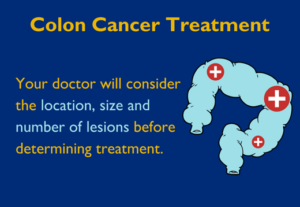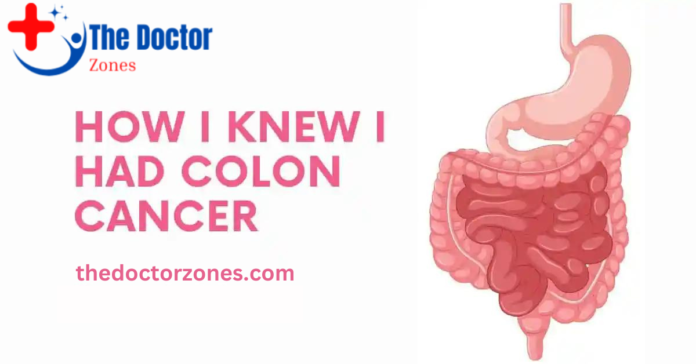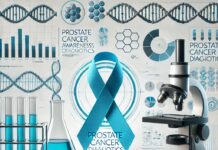How I Knew I Had Colon Cancer: Symptoms of colon cancer
Changes in bowel habits, such as increased frequency of diarrhea or constipation, are among the symptoms that may indicate colon cancer. bleeding in the rectum or blood in the stool? Ongoing discomfort in the gut area, such as cramps, gas or pain.
Personal Experience: The Initial Signs
Understanding Colon Cancer: A Comprehensive Guide
Colon cancer, also known as colorectal cancer, is a significant health concern that can affect individuals of all ages, though it is more prevalent in older adults. This article aims to provide an in-depth look at colon cancer, including early signs of colon cancer, symptoms, diagnosis, treatment options, and the importance of awareness and early detection. I will share my personal story of colon cancer, interweaving it with medical insights to create a resource that informs and inspires.
What is Colon Cancer?

Colon cancer begins in the large intestine (colon), which is a crucial part of the digestive system. It typically starts as small clumps of cells called polyps that can develop into cancer over time. Most polyps are not cancerous, but some can turn into colon cancer if not detected and removed.
Understanding the biology of colon cancer is essential in recognizing colon cancer warning signs. Changes in DNA within colon cells can lead to uncontrolled cell growth, resulting in tumors that may invade surrounding tissues and spread to other parts of the body. Read more articles: Is Bowel Leakage a Sign of Cancer?
Recognizing Colon Cancer Indicators
Awareness of the signs of colorectal cancer is crucial for early diagnosis and treatment. Some of the symptoms of colon cancer may include:
- A change in bowel habits, such as increased frequency of diarrhea or constipation
- Rectal bleeding or blood in the stool
- Ongoing discomfort in the belly area, including cramps, gas, or pain
- A feeling that the bowel doesn’t empty completely during a bowel movement
- Unexplained weight loss
- Weakness or fatigue
These symptoms may vary depending on the cancer’s size and location within the colon. As someone who has experienced my colon cancer journey, I can attest that recognizing these signs early can make a significant difference in the treatment outcome. Also Read this article: How I Found Out I Had Kidney Cancer
Colon Cancer Diagnosis: The Path to Detection
When I first noticed the early signs of colon cancer, I was reluctant to seek help. However, consulting a healthcare professional was vital in determining my health status. During the colon cancer diagnosis process, I underwent various tests, including colonoscopies and imaging studies, to identify any abnormalities.
Detecting colon cancer early is essential for successful treatment. Regular screenings are recommended, particularly for individuals over the age of 45 or those with a family history of colon cancer. These screenings can help identify polyps and early-stage cancer, allowing for timely intervention.
My Real-Life Colon Cancer Experience
Reflecting on my personal experience, I vividly remember the anxiety and fear associated with my diagnosis. The moment I received the news that I had colon cancer was life-changing. It felt surreal, and emotions ranged from disbelief to a sense of urgency to take action. The emotional impact of a cancer diagnosis cannot be overstated, and having a strong support system of family and friends was invaluable during this challenging time.
Navigating treatment options for colon cancer, including surgery, chemotherapy, and radiation therapy, required extensive discussions with my medical team. Each treatment option came with its own set of potential side effects and challenges. Understanding these aspects is crucial for anyone facing a similar diagnosis.
Understanding Colon Cancer Symptoms and Treatment

Understanding colon cancer symptoms is the first step in taking charge of one’s health. After being diagnosed, I learned about various treatment modalities:
Surgery
Surgery was the primary treatment for my colon cancer. The goal was to remove the cancerous growth and any affected surrounding tissue. I was fortunate to have a skilled surgical team that guided me through the entire process.
Chemotherapy
Post-surgery, I began chemotherapy, which aimed to eliminate any remaining cancer cells. Managing the side effects of chemotherapy was a significant aspect of my recovery journey. Side effects such as nausea, fatigue, and hair loss were challenging, but having a proactive approach to my health helped me navigate this phase.
Radiation Therapy
In some cases, radiation therapy is also incorporated into treatment plans. It is essential to discuss all available options with healthcare providers to develop a tailored treatment strategy.
Colon Cancer Prevention Tips
While my journey involved treatment, I also learned the importance of colon cancer prevention tips. Here are some lifestyle changes that can significantly reduce the risk of developing colon cancer:
- Dietary Choices: Eating a diet rich in fruits, vegetables, and whole grains can provide essential nutrients and fiber that support digestive health.
- Regular Exercise: Engaging in physical activity most days of the week can help maintain a healthy weight and reduce the risk of colon cancer.
- Avoiding Tobacco and Limiting Alcohol: Smoking and excessive alcohol consumption are linked to higher colon cancer risks. Quitting smoking and moderating alcohol intake are vital steps toward prevention.
- Regular Screenings: For those at average risk, starting colon cancer screening around age 45 is recommended. For those with higher risks, screenings may need to begin sooner.
Recognizing Colon Cancer Red Flags
As I reflect on my journey, I emphasize the importance of recognizing colon cancer indicators and not ignoring any potential symptoms. Being proactive about health and discussing any concerning changes with a healthcare professional can lead to early detection and improved outcomes.
The Importance of Colon Cancer Awareness
Sharing personal experiences, such as my own, contributes to greater colon cancer awareness within communities. By encouraging open conversations about health and preventive measures, we can help others recognize the importance of timely medical consultations and screenings.
Conclusion: Taking Charge of Your Health
In conclusion, my journey with colon cancer has been transformative. From recognizing colon cancer red flags to undergoing treatment and advocating for awareness, I’ve learned that early detection is critical. By understanding how to detect colon cancer early and staying informed about the risks and symptoms, we can take charge of our health.
If you or someone you know is experiencing symptoms of colon cancer, I encourage you to seek medical advice promptly. Together, we can foster a culture of awareness and proactive health management, ultimately leading to better outcomes for those affected by colon cancer.
FAQs
Q: What are the early signs of colon cancer?
A: Early signs may include changes in bowel habits, rectal bleeding, abdominal discomfort, and unexplained weight loss.
Q: How is colon cancer diagnosed?
A: Diagnosis typically involves a physical exam, discussions about symptoms, family history, and diagnostic tests like colonoscopies.
Q: What treatment options are available for colon cancer?
A: Treatment options include surgery, chemotherapy, and radiation therapy, tailored to individual patient needs.
Q: How can I lower my risk of colon cancer?
A: Eating a healthy diet, exercising regularly, avoiding tobacco, and participating in regular screenings can help reduce risk.
Q: Why is colon cancer awareness important?
A: Increased awareness leads to early detection, better treatment options, and improved survival rates for those diagnosed with colon cancer.








